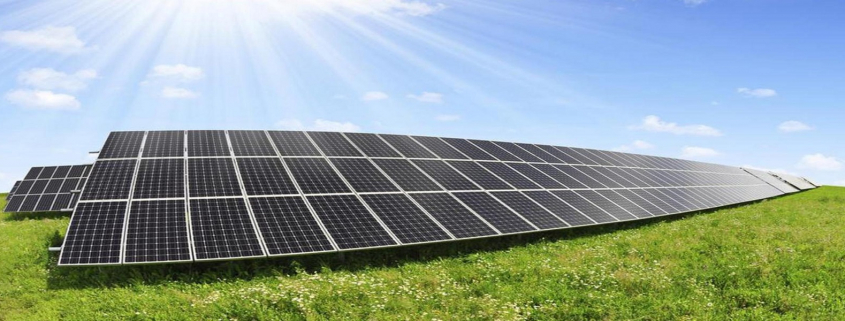There’s a fierce battle being waged in Florida over access to one of our state’s greatest resources: the sun.
With the effects of climate change ever more obvious, solar is a scorching-hot policy topic, and we’re seeing a lot of activity around two competing solar ballot initiatives in Florida — one backed by solar advocates and the other by utility companies.
The result? Even for die-hard solar power believers, the fight has gotten beyond confusing. So here’s a breakdown of the green energy tussle:
What’s The Problem With Solar In Florida?
With our bounty of sunshine, the Sunshine State should be a model for solar. But Florida, which ranks third in the nation in rooftop solar energy potential, currently comes in at number 13 in the amount of solar energy generated. We also have some of the lowest solar investment in the country. Instead, consumers rely on Florida’s “dirty” energy mix — natural gas (62 percent), coal (21 percent), and nuclear (12 percent).
Why Are We Lagging So Far Behind?
For a long time, everybody thought solar panels were only for rich people. But that’s not the reality anymore — the equipment is now affordable and accessible. In many states, consumers purchase from among hundreds of companies that install rooftop solar panels at little or no cost. In California, for instance, companies lease rooftop solar equipment to homeowners and bill them monthly for the electricity created, which lets homeowners enter the market for little or no money down and pay as they go.
But in Florida, consumers who want to get solar are forced to rely on big utility companies, like Florida Power & Light, which aren’t making it easy or cheap. In fact, Florida is one of only four states that require solar energy be sold exclusively by utilities. The result is limited options for installing solar and increased upfront financial commitment for consumers, which creates a major obstacle for most people.
What’s The Proposal To Change It?
After it became clear that politicians weren’t going to get it done, some upstart citizen groups decided to take things into their own hands. They created a 2016 ballot initiative, which would open up the state’s solar market, giving consumers a number of options for getting solar panels themselves. Floridians for Solar Choice, the group behind the initiative, is backed by an unlikely alliance — from environmentalists to Tea Party libertarians — who view the lack of consumer choice as both harmful to the environment and an infringement on personal freedom.
If it succeeds, the ballot initiative would let voters decide if they want to change Florida’s constitution to allow businesses other than utilities to sell solar power to consumers. Homeowners would also get the flexibility to enter into contracts with solar companies, also known as Solar Power Purchase Agreements (SPPA). Florida would be the 47th state to allow SPPAs.
What’s The Process To Get This Passed?
Before the amendment can happen, it first has to get on the ballot for voters. To get there, the group must collect signatures from 683,149 Florida voters, or 8 percent of the votes cast in the 2012 presidential election, by February. They also have to raise money to be able to pay county election supervisors 10 cents for each signature submitted. And the ballot language must also get the green light from the Supreme Court (which is likely to happen this week).
Right now, the Solar Choice campaign has about 171,000 verified signatures with another 100,000 awaiting verification. It has raised $1.3 million, most of it from the Southern Alliance for Clean Energy. It’s also been endorsed by a slew of environmental groups, both local and national.
So Who’s Against This?
Who do you think? The utility companies, silly. A group called Consumers for Smart Solar is challenging the amendment with its own rival ballot initiative, which seeks to keep the solar market strictly in the hands of the utilities and prevent homeowners or businesses from contracting with solar companies. It was created with cash from utilities like FPL, Gulf Power Co., and Tampa Electric Co. as well as groups tied to the billionaire Koch brothers. (Much of the Kochs’ vast wealth comes from their oil refinery and pipeline business.)
But backers of expanded solar power say the amendment is purposely crafted to mix up voters at the polls. According to the Energy and Policy Institute, “Consumers for Smart Solar is a utility and fossil fuel-funded campaign designed to confuse voters, attack the pro-solar Floridians for Solar Choice Ballot initiative, and protect the monopoly utilities.”
How Do I Sign The Solar Choice Amendment?
Go here, download the petition, and mail it in. You cannot fill it out online.
Source: Miami New Times

